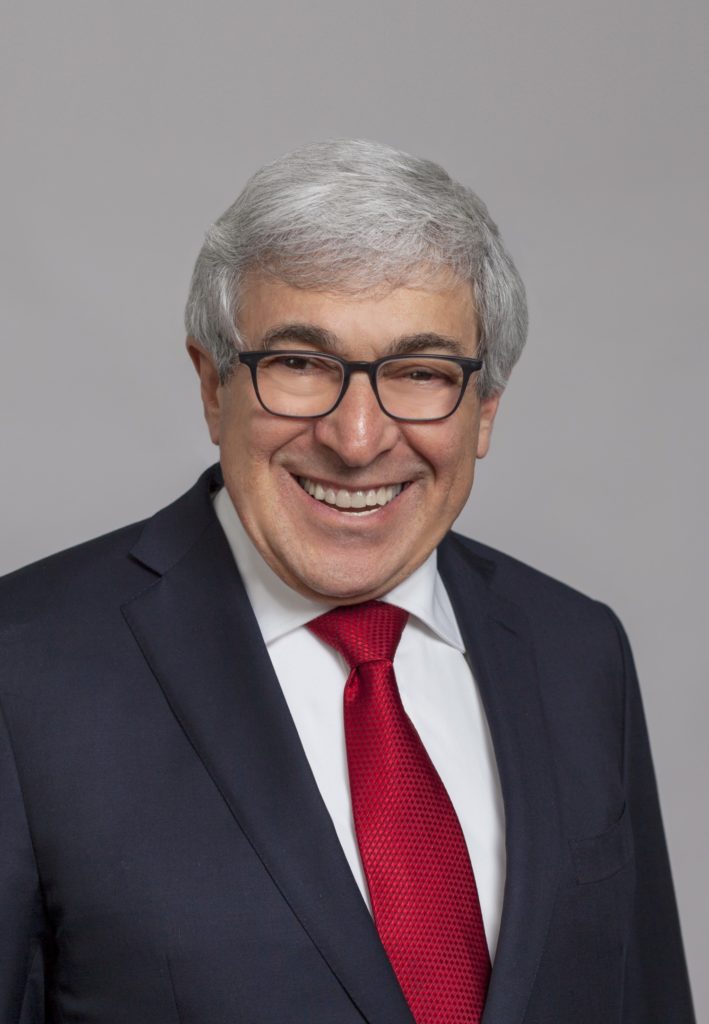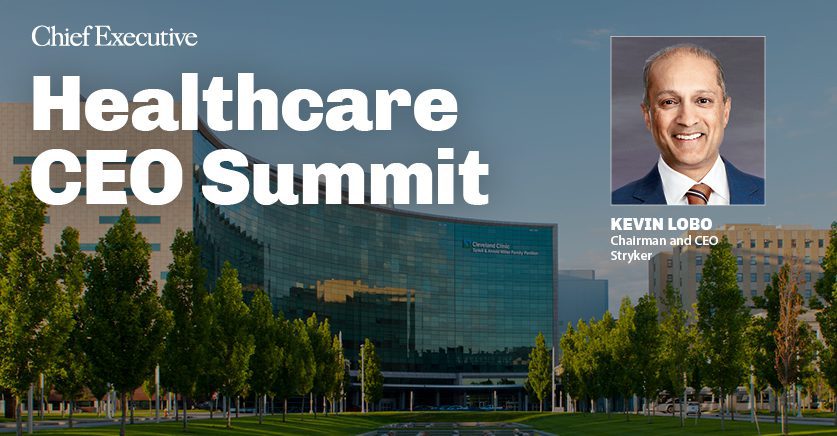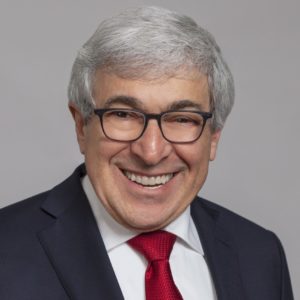
We live in a wondrous age of mind-boggling technological advances that are revolutionizing every industry, profession, and company.
In healthcare — the industry in which Henry Schein participates, serving medical and dental practices — technology promises extraordinary opportunities to improve life. We can, for example, record our vital signs on a wearable device and stream the data to your doctor. We can use artificial intelligence to make diagnoses, speed treatment, and develop digital impressions. We can even tell a virtual digital assistant to retrieve medical information, saving time and enhancing care.
It’s that last possibility — enhancing care — which makes the digital age so exciting. The notion that technology can alleviate so many ills in our aging healthcare system is attracting investment dollars and media headlines, and understandably so. We at Henry Schein are among those excited to bring the latest technology to market because we see the potential of technology to expand access to quality care.
 Join Stanley Bergman, Stryker CEO Kevin Lobo and many others at the Cleveland Clinic for our Healthcare CEO Summit on October 21, 2019. Register here.
Join Stanley Bergman, Stryker CEO Kevin Lobo and many others at the Cleveland Clinic for our Healthcare CEO Summit on October 21, 2019. Register here.But we should remind ourselves that progress often comes with a cost which may not be obvious as technologies emerge. My concern is that the digital age could put distance between patients and caregivers, especially among the underserved, who are least able to afford new technology and benefit from its development.
We cannot forget that technology is a tool that should serve humanity, not the other way around. We don’t exist for technology; technology exists for us.
I say this as someone who recently had the most remarkable medical experience. I had very successful back surgery at Mather Hospital, located in the quaint, seaside Long Island village of Port Jefferson. Mather was equipped with all the new technology I could have wanted to make the surgery go well.
But what really made the difference at Mather was the people. Every person at the hospital — from the security guards to the receptionists, nurses, surgeon, and administrative staff — could not have been more welcoming and compassionate. From admittance to discharge, the good people of Mather treated me as a human being who needed healing.
Improving the delivery of healthcare must begin by understanding that human beings need real human interactions with caring medical professionals dedicated to healing us. We need to avoid the trap of thinking that technology is a panacea for what ails us. Instead, we need to keep humanity at the core of healthcare.
Our challenge today is to marry the convenience and tremendous clinical advances of technology with the compassion of real human connections.
Automation, for example, powered by advances in artificial intelligence, has the potential to reduce medical errors and costs. But the more people interact with computers, the less we connect with each other on a human basis, which is where true healing occurs.
Here’s a real-life example: A surgeon friend of mine tells the story of a young, highly skilled colleague who, upon leaving the operating room, immediately fired up his smartphone, ignoring the family of the person who just had surgery. My friend, who is the more experienced surgeon, makes time after every procedure to explain to the family the status of the patient. Comforting the family as well as the patient, according to the research, results in tangible benefits, including better treatment adherence, fewer complications, and reduced readmissions. This is a higher ambition than merely cutting bone and suturing skin.
Of course, it’s not just the patient who benefits from this approach. Unsurprisingly, the incidence of burnout among healthcare professionals declines significantly in those environments that emphasize human connections, according to the Arnold P. Gold Foundation. I believe healthcare professionals want to be healers, and we must nurture environments that fulfill the very reason they chose medical school in the first place.
To this end, we at Henry Schein are pleased to serve as a founding member of the Corporate Council of the Arnold P. Gold Foundation, along with BD, IBM Watson, Medtronic, and Quest Diagnostics. The Arnold P. Gold Foundation is dedicated “to infusing the human connection into healthcare” and pioneered the “White Coat” ceremony that commits students to compassionate, collaborative, scientifically excellent care as they begin their training at medical, nursing, and physician assistant programs.
We all know the common complaints about the American healthcare system. We pay way too much for subpar results, on average, relative to other industrialized nations. We’re not going to fix that problem simply by strapping a digital activity tracker on everyone. We’re also not going to fix it by forcing doctors to spend more time entering data on a computer screen instead of engaging with the person sitting anxiously on the exam table.
But if we embrace the idea of treating patients as human beings who are worthy of sincere attention and care, then we will truly put ourselves on the road toward healing each other and, perhaps, the healthcare system itself.
Read more: Allscripts CEO Paul Black On Navigating Healthcare’s Major Changes

Chief Executive Group exists to improve the performance of U.S. CEOs, senior executives and public-company directors, helping you grow your companies, build your communities and strengthen society. Learn more at chiefexecutivegroup.com.
0

1:00 - 5:00 pm
Over 70% of Executives Surveyed Agree: Many Strategic Planning Efforts Lack Systematic Approach Tips for Enhancing Your Strategic Planning Process
Executives expressed frustration with their current strategic planning process. Issues include:
Steve Rutan and Denise Harrison have put together an afternoon workshop that will provide the tools you need to address these concerns. They have worked with hundreds of executives to develop a systematic approach that will enable your team to make better decisions during strategic planning. Steve and Denise will walk you through exercises for prioritizing your lists and steps that will reset and reinvigorate your process. This will be a hands-on workshop that will enable you to think about your business as you use the tools that are being presented. If you are ready for a Strategic Planning tune-up, select this workshop in your registration form. The additional fee of $695 will be added to your total.

2:00 - 5:00 pm
Female leaders face the same issues all leaders do, but they often face additional challenges too. In this peer session, we will facilitate a discussion of best practices and how to overcome common barriers to help women leaders be more effective within and outside their organizations.
Limited space available.

10:30 - 5:00 pm
General’s Retreat at Hermitage Golf Course
Sponsored by UBS
General’s Retreat, built in 1986 with architect Gary Roger Baird, has been voted the “Best Golf Course in Nashville” and is a “must play” when visiting the Nashville, Tennessee area. With the beautiful setting along the Cumberland River, golfers of all capabilities will thoroughly enjoy the golf, scenery and hospitality.
The golf outing fee includes transportation to and from the hotel, greens/cart fees, use of practice facilities, and boxed lunch. The bus will leave the hotel at 10:30 am for a noon shotgun start and return to the hotel after the cocktail reception following the completion of the round.